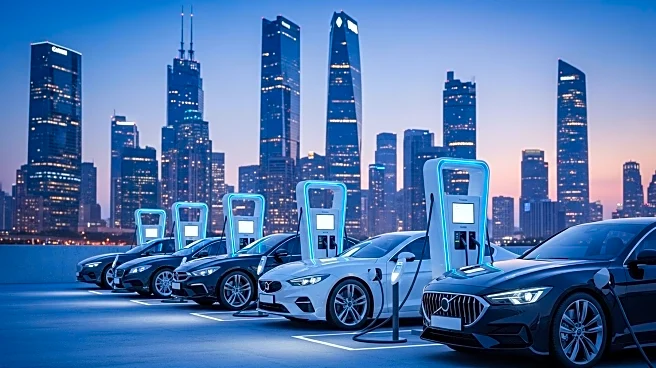What is the story about?
What's Happening?
The One Big Beautiful Bill Act, signed into law by President Trump, is ending the $7,500 tax credit for new electric vehicles and $4,000 for used EVs. This change is effective as of September 30, 2025. In response, automakers like Ford and General Motors are launching initiatives to extend the benefits of these credits. These companies are offering down payments on leased vehicles through their dealers, allowing customers to benefit from the tax credit indirectly. The financing units of these automakers will purchase EVs from dealer inventories, apply the tax credit, and then lease the vehicles to customers at a reduced rate. This approach has been discussed with the Internal Revenue Service to ensure compliance with tax regulations.
Why It's Important?
The expiration of the EV tax credits could significantly impact the electric vehicle market in the U.S., potentially slowing down the adoption of EVs due to increased costs for consumers. Automakers' efforts to mitigate this impact by offering alternative programs highlight the industry's commitment to maintaining momentum in EV sales. This development is crucial for the automotive industry, which is increasingly focused on sustainability and reducing carbon emissions. The continuation of incentives, even through alternative means, supports the growth of the EV market and aligns with broader environmental goals.
What's Next?
As the tax credit deadline passes, there may be a temporary slowdown in EV sales, followed by a market adjustment. Automakers will likely continue to innovate and find ways to make EVs financially attractive to consumers. The industry may also push for new legislative measures to reinstate or replace the expired tax credits. Additionally, advancements in EV technology and infrastructure are expected to continue, supporting long-term growth in the sector.
















